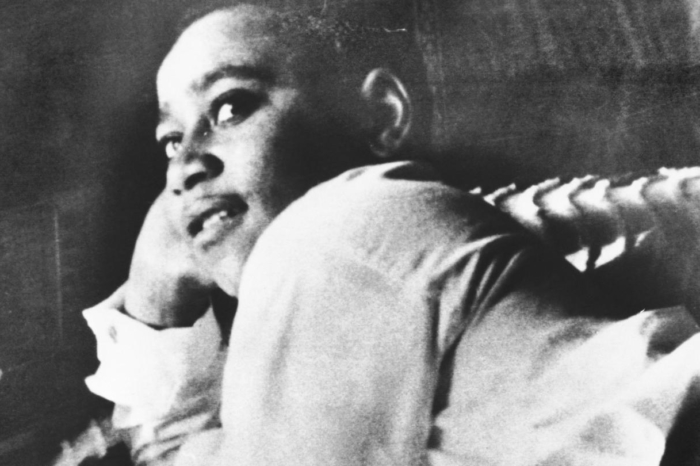When ignorance and violence are permitted to trump justice
This op-ed appeared in the MetroWest Daily News, Worcester Telegram & Gazette, Lowell Sun, Fitchburg Sentinel and Enterprise, New Bedford Standard Times.
This week marks the 65th anniversary of the murder of Emmett Till, a 14-year old black boy from Chicago who was killed by two white Mississippians for whistling in the presence of a white woman.
“Oh, what sorrow,
Pity, pain, That tears and blood Should mix like rain In Mississippi! And terror, fetid hot, Yet clammy cold Remain.”
–“Mississippi – 1955” (To the Memory of Emmett Till), Langston Hughes
This week marks the 65th anniversary of the murder of Emmett Till, a 14-year old black boy from Chicago who was killed by two white Mississippians for whistling in the presence of a white woman. “The news of Emmett’s death caused many people to participate in the cry for justice and equal rights, including myself,” wrote Rosa Parks, the first lady of civil rights.
The savagery of Emmett’s executioners, ensuing perversion of criminal justice, and the poised bravery his mother displayed are lessons that all American schoolchildren should know. But national data tell us that students’ knowledge of U.S. history is perilously feeble and largely unchanged since 1998.
Emmett’s mother, Mamie, was born in Mississippi in 1921. When she was two, her parents moved to Chicago. There, Mamie excelled in school, worked, got married, and in 1941 gave birth to her only child, Emmett. His father died when he was four, and childhood polio left him with a stutter. But he was a confident, playful little kid whose family always described him as being courageous beyond his years.
In late August 1955, a month after his 14th birthday and 15 months after the U.S. Supreme Court’s historic Brown v. Board of Education decision, Mamie reluctantly allowed Emmett to visit family in Mississippi. In her powerful memoir, Death of Innocence, she recalls firmly warning Emmett before he left about the dangers of Jim Crow laws: “white people down South could be very mean to blacks, even to black kids. Don’t start up any conversations with white people.”
While staying with Mamie’s sharecropping uncle, Emmett and his cousins went to Bryant’s Grocery & Meat Market in Money, Mississippi, to buy some candy. Carolyn Bryant, the 21-year-old, white wife of the store’s owner, was keeping shop.
Even today the details remain unclear. Carolyn claimed 14-year-old Emmett made a suggestive comment towards her, after which she went to her car to get her gun. Then, he whistled at her. According to some, Emmett often whistled to start over after stuttering.
Under Jim Crow, a whistle could be lethal.
On Aug. 28, 1955, around 2:30 a.m., Roy Bryant and his half-brother J.W. Milam kidnapped Emmett Till at gunpoint, taking him to a local barn. There, they took turns pistol-whipping him and gouged out an eye before stripping him. They used barbed wire to bind him to a 70-pound cotton gin fan, shot him through the head, and dumped his body in the Tallahatchie River.
His mother arranged for Emmett’s body to be returned to Chicago where she verified the grotesque, decomposing corpse was her slaughtered son. She insisted upon an open-casket funeral at Roberts Temple Church of God in Christ, which drew 50,000 grieving, horror-stricken mourners and international media.
“People had to face my son and realize just how twisted, how distorted, how terrifying race hatred could be… The whole nation needed to bear witness to this,” Mamie wrote.
Despite worldwide media scrutiny, Bryant and Milam were rapidly acquitted by an all-white jury in a circus-like trial. Now protected by double jeopardy, the assassins sold their story to Look magazine and confessed the entire crime.
?[I]f we in America have reached that point in our desperate culture when we must murder children, no matter for what reason or what color,” Mississippi’s Nobel Prize-winning novelist William Faulkner wrote ominously at the time, “we don’t deserve to survive, and probably won’t.” Four months later, Rosa Parks’ bus boycott began in Montgomery, Alabama.
Emmett Till would have celebrated his 79th birthday in July, and we’ll never know what he would have become: preacher, teacher, civil rights leader? We do know that his barbaric murder is a horrifying lesson in what happens to societies when ignorance and violence are permitted to trump justice and the rule of law.
Clearly, ignorance and racial violence persist in America. To ensure that they don’t prevail, we need to honor our shared past by demanding that political leaders expand the educational opportunities that successfully deliver these hard, historical truths to our kids.
Get Updates on Our Education Research
Related Content:



